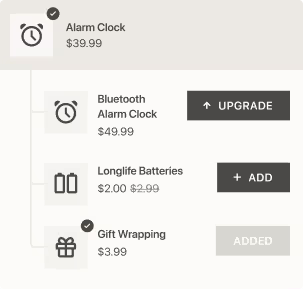We are in the mid-summer, meaning another major update of Shopify is here. The previous one in winter brought many new features which are now used frequently (i.e., one-page checkout or metaobjects), but also some which have been rather forgotten (i.e., Shop Promise).
Shopify Editions Summer 2023 brings together over 100 updates, in many cases major ones meaning completely new features and flows. We have put together an overview and summary of the key ones.
Top 10 Shopify updates you shouldn't miss
1. Shopify Flow available for Basic plans
Shopify Flow is an app that allows store owners set up powerful automations. Like sending a welcome email or delisting a sold-out product.

Initially, the app was available only to Shopify Plus merchants but gradually became available for the rest of the plans. Starting today, it can be used by Shopify Basic stores for free as well.
2. Shopify Subscriptions (new app; early access only)
The subscription economy is still a huge trend in e-commerce. There are dozens of third-party subscription solutions on the App Store, most of them using the Shopify native API. But most of them are also paid.
With the new Shopify Subscriptions app, you can offer your customers to subscribe to your products for free. They can also perform basic subscription actions (cancel, pause, update payment details) directly in their customer account.

The app is not publicly released yet, but you can sign up for early access.
3. Shopify Bundles (new app)
Another new app, Shopify Bundles, allows you to create product bundles natively. We have been using it for some time on one of our stores, and it works perfectly. You can create custom bundles from existing products in your catalog, and when customer purchase them, the inventory of bundled products is automatically adjusted.

The main benefit is native integration and the free availability of the solution. There are many third-party bundle apps on the App Store, but most of them are paid.
4. Shopify Marketplace Connect ("new" app; ex-Codisto)
Using the Shopify Marketplace Connect app, you can easily upload your products to marketplaces like Amazon, eBay, or Walmart. Inventory, orders, descriptions, customers, and pricing is automatically synchronized. You can even set up custom pricing for specific marketplace.

What's interesting is that the app is apparently a redesigned Codisto app which is no longer listed on the App Store and redirects to the one from Shopify.
5. Theme flex sections (coming later this year)
Shopify continues to give merchants more tools to control their frontends using the simple drag & drop method. The announced flex sections are basically enhanced sections that allow merchants to edit them – change alignment, add elements, re-size, etc.

The feature is not available yet and should come later this year. Page builders are still more powerful, but Shopify is definitely going in the same (right) direction.
6. Shopify Magic and Sidekick (AI capabilities)
Prior to Editions, Tobi (Shopify founder and CEO) announced Shopify Sidekick, which is an AI bot that helps the store owner to run the business successfully.
Sidekick is just part of the Shopify Magic toolbox that includes all the AI commerce tools. The tools are enhancing Shopify Inbox by automatically generating replies and FAQs and helping to write better e-mails and product descriptions.
7. New Checkout Functions and checkout features
Checkout continues to be the priority for Shopify. They introduced 17 new APIs for developers and very compelling product roadmap for Checkout Functions which are available to all Shopify plans via public apps.
Some minor updates include address validation, custom fonts, upselling subscription, offering pre-orders, and enhanced checkout editor, including preview. Unfortunately, all these updates are available to Shopify Plus stores only via the Shopify UI Extensions.
8. New B2B features (Shopify Plus only)
Same as checkout, another priority is obviously a B2B segment. Shopify continues to improve the B2B experience and gives businesses more tools to fulfill their specific needs. Some of the key new B2B features are:
- Native volume pricing
- Storing B2B customers credit cards
- PayPal support for B2B
- Quick order lists
- Storefront customizations in theme editor for B2B clients (see next)

9. Store differentiation (context) for specific markets
The theme editor now includes a new drop-down menu allowing you to customize the specific page/element/block for a specific market or B2B segment.

This is really powerful feature and enables you to better and easier localize storefronts for particular markets. The feature is automatically activated if you are using Shopify Markets or B2B.
10. Faster storefronts by 30%
This wasn't mentioned during the official event, but I find it really compelling. According to the Chromium User Experience (CrUX), 30% more users are now successfully passing the Time to First Byte (TTFB) benchmark.

There have been multiple changes to achieve this, including single-domain hosting for static content and simplified lazy loading for themes. You can read more details and statistics in this blog post.
Conclusion and other changes
Shopify Editions Summer 2023 brought an extraordinary amount of new stuff and things to help businesses using Shopify. It was really hard to pick just ten of the most important ones, so make sure to check the rest of them.
There were also a lot of new updates related to Shop App and Shop Pay, but rather minor ones. From my point of view, it was all about three things: AI, B2B, and new apps developed by the Shopify team.
Shopify also upped their presentation videos which clearly demonstrates the value of the changes. You can watch the official one from the event below presented by Glen Coates, Shopify VP of Product.
















